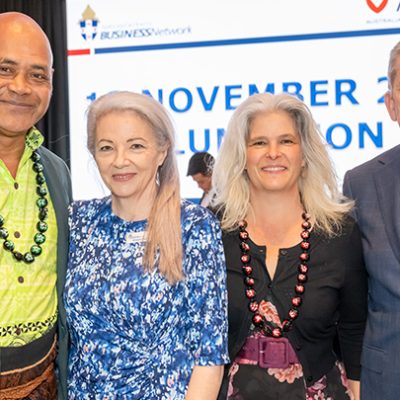
All large Australian companies should be required to report on modern slavery risks in their operations and supply chains, and face penalties if they fail to do so, the Australian Catholic Anti-slavery Network says.
ACAN also supports the requirement for the Australian public sector to comply with the Modern Slavery Act, which it believes would be better administered by the Office of the Fair Work Ombudsman. Labour hire licensing covering every Australian jurisdiction is needed to protect workers at risk of forced labour.
ACAN made these recommendations to the Albanese Government to strengthen Australia’s Modern Slavery Act.
In a personal reflection as part of the ACAN submission, ACAN lived experience advisor Moe Turaga said that the Act had changed the landscape for people of lived experience.
However, he said that penalties were now required to ensure more organisations did the right thing by people at risk of extreme exploitation.
“The Act has forced companies to consider uncomfortable truths. It has made modern slavery a governance issue. And while many businesses have responded with tick-box compliance, a growing number are moving toward meaningful engagement… That’s progress, and it takes time,” Mr Turaga said.
“The Act was never designed to solve modern slavery overnight. It was designed to expose it. And it has.
“The Modern Slavery Register shows patchy reporting, weak enforcement and a culture of non-compliance. That’s not a failure of the Act. That’s a failure of regulation.”
“The Act gave us the scaffolding. Now we need the steel.”
To inform the ACAN submission, ACAN staff surveyed Modern Slavery Liaison Officers and Modern Slavery Working Group members across the Network in August 2025, asking them about a range of measures they thought would strengthen the Modern Slavery Act.
ACAN executive officer Alison Rahill said: “100 per cent of respondents wanted Australian public sector agencies to comply with Act”.
“Since the Modern Slavery Act came into force, Catholic organisations participating in the ACAN Program have demonstrated that it is possible for a large, diverse and dispersed network to respond to modern slavery risk by implementing systems and processes that can be accurately measured,” Ms Rahill said.
“If Catholic organisations can put these systems in place, public sector agencies must also be capable of doing so.”
The ACAN submission and Mr Turaga’s reflection are available on the ACAN website.
FULL STORY






